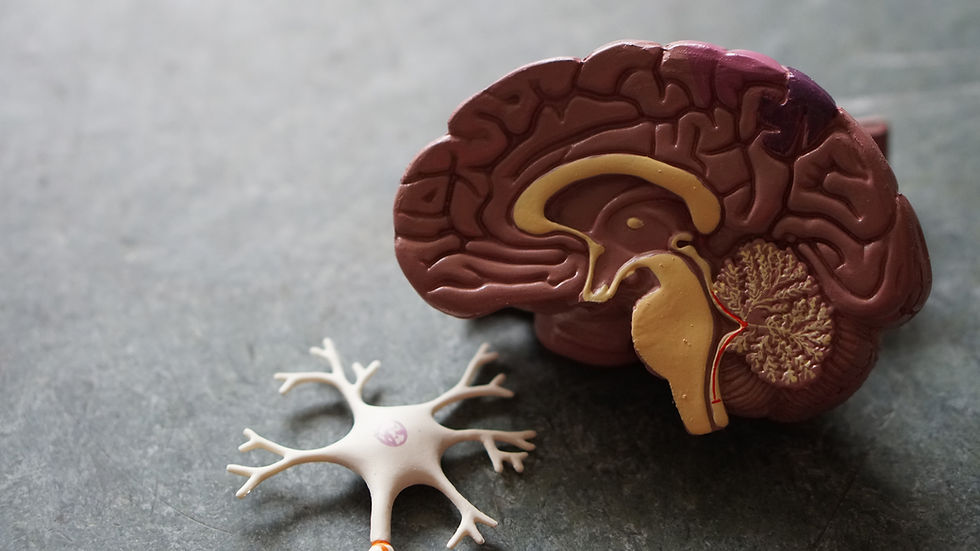Unlocking the Biochemical Wonders of Yoga
- Michelle Lamansky
- Oct 29, 2023
- 2 min read
Updated: Apr 30
Yoga offers far more than flexibility and stress relief. Cutting-edge research reveals how yoga’s combination of physical postures, breathwork, and mindfulness triggers powerful biochemical changes in the body. In this post, we’ll dive into five key systems yoga influences—so you can optimize your practice for maximum health benefits.
1. Stress Reduction & Cortisol Control
Chronic stress floods your body with cortisol, the “stress hormone,” leading to tension, fatigue, and weight gain. Yoga’s slow movement and deep breathing activate your parasympathetic nervous system, resetting your stress response and dramatically lowering cortisol levels.
Pro Tip: Incorporate Legs-Up-the-Wall (Viparita Karani) after a challenging day to tap into the relaxation response immediately.
👉 Download your FREE 5-Minute Yoga Reset for a quick cortisol-calming sequence.
2. Immune System Boost
Regular yoga practice enhances immune function by reducing systemic inflammation and improving white blood cell activity. The relaxation response triggered by yoga promotes balanced cytokine levels and supports your body’s natural defenses against illness.
Read More: Check out our guide: Anti-Inflammatory Checklist to complement your immune-boosting yoga routine.
3. Mood-Boosting Neurotransmitters
Yoga elevates levels of serotonin (“feel-good” neurotransmitter) and GABA (gamma-aminobutyric acid), which help quell anxiety and stabilize mood. These biochemical shifts underlie the emotional calm many experience on and off the mat.
See for Yourself: Yoga and Holistic Wellness have helped women like you. Click Here to Read Real Client Stories. Proof that when you support your body's systems, everything begins to shift.

4. Heart Health & Blood Pressure Regulation
Studies show that consistent yoga practice can lower blood pressure, improve arterial flexibility, and reduce resting heart rate. The synergy of controlled breathing, gentle flow, and meditation enhances cardiovascular function and reduces risk factors for heart disease.
Try This: Finish your next Vinyasa sequence with 2 minutes of Nadi Shodhana (alternate nostril breathing) to support heart health.
5. Sharper Brain & Cognitive Performance
Yoga isn’t just for the body—your brain benefits too. Research finds that yoga increases gray matter in regions tied to memory and attention, while enhancing processing speed and executive function. The blend of movement, breath control, and mindful focus creates a potent recipe for cognitive vitality.
Dive Deeper: Explore our blog on Gentle Yoga for Beginners to start boosting your brain health today.
Conclusion: Embrace Yoga’s Biochemical Power
From cortisol control and immune support to neurotransmitter balance, cardiovascular health, and cognitive enhancement, yoga offers a holistic pathway to optimal biochemistry—and lasting well-being.

✨ Next Steps:
New to yoga? Grab your FREE 5-Minute Yoga Reset and experience immediate calm.
Ready for more? Enroll in my Calm Body, Clear Mind Starter Course for step-by-step guidance, just $37.
Your mat is more than a workout—it’s a laboratory for transformation. Step on, breathe deep, and unlock yoga’s remarkable biochemical benefits today.
Michelle LamanskyRYT-500 | Holistic Health Coach
Balanced Yoga TN — Helping Women Reduce Inflammation, Reclaim Energy & Thrive
balancedyogatn.com | balancedyogatn@gmail.com | 901-481-4416
.png)



Comments